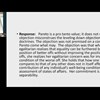simple
Poor Kids? Economic Resources and Adverse Peer Relations in a Nationally Representative Sample of Swedish Adolescents
Journal of Youth and Adolescence, First online, DOI 10.1007/s10964-017-0747-8 Abstract There is limited knowledge on the impact of economic resources on adverse peer relations during adolescence. This st
Putting the person in to the particle
Report on seminar 'Modelling Social Mechanisms for Knowledge Generation & Exploration' by Nanda Wijermans (Stockholm Resilience Centre) Over the last decade physicists have developed “social force”
Moderators of the disapproval of peer punishment
Group Processes & Intergroup Relations, 1368430215583519. Abstract Recent studies have found disapproval of peer punishment of norm violations. This seems puzzling, given the potential benefits peer
The refinement paradox and cumulative cultural evolution: Complex products of collective improvement favor conformist outcomes, blind copying, and hyper-credulity
PLOS Computational Biology Abstract Social learning is common in nature, yet cumulative culture (where knowledge and technology increase in complexity and diversity over time) appears restricted to huma
Learning by Imitation in Games: Theory, Field and Lab
Erik Mohlin, Oxford University We exploit a unique opportunity to study how a large population of players in the field learn to play a novel game which has a complicated and non-intuitive mixed strateg

Richard Arneson: Should we reward the deserving? Some puzzles
Do plausible fundamental principles of justice incorporate the idea of rewarding the deserving? Utilitarianism is famously indifferent between a world in which saints fare badly and scoundrels fare we
The Outputs of Large Language Models are Meaningless
Cappelen, H. & R. Sterken (eds.) Communicating with AI: Philosophical Perspectives. Oxford: Oxford University Press Abstract In this paper, we offer a simple argument for the conclusion that the outp
What we talk about when we talk about equality
Equality seems like a simple enough notion. It is about everybody having the same amount of whatever resources we care about. But is it really that simple? The American philosopher Larry Temkin tells
Friendship trust and psychological well-being from late adolescence to early adulthood: A structural equation modelling approach
Scandinavian Journal of Public Health, Volume: 45 issue:3, pp.244-252. doi.org/10.1177/1403494816680784 Abstract Aims:This study explored the sex-specific associations between friendship trust and the p: The findings suggest that young people do not benefit from trustful social relations to the same extent as adult populations. Young women who express impaired well-being run a greater risk of being members of networks characterized by low friendship trust over time.
Pitfalls in Spatial Modelling of Ethnocentrism
Journal of Artificial Societies and Social Simulation 16 (3) 2 http://jasss.soc.surrey.ac.uk/16/3/2.html Abstract Ethnocentrism refers to the tendency to behave differently towards strangers based only on








